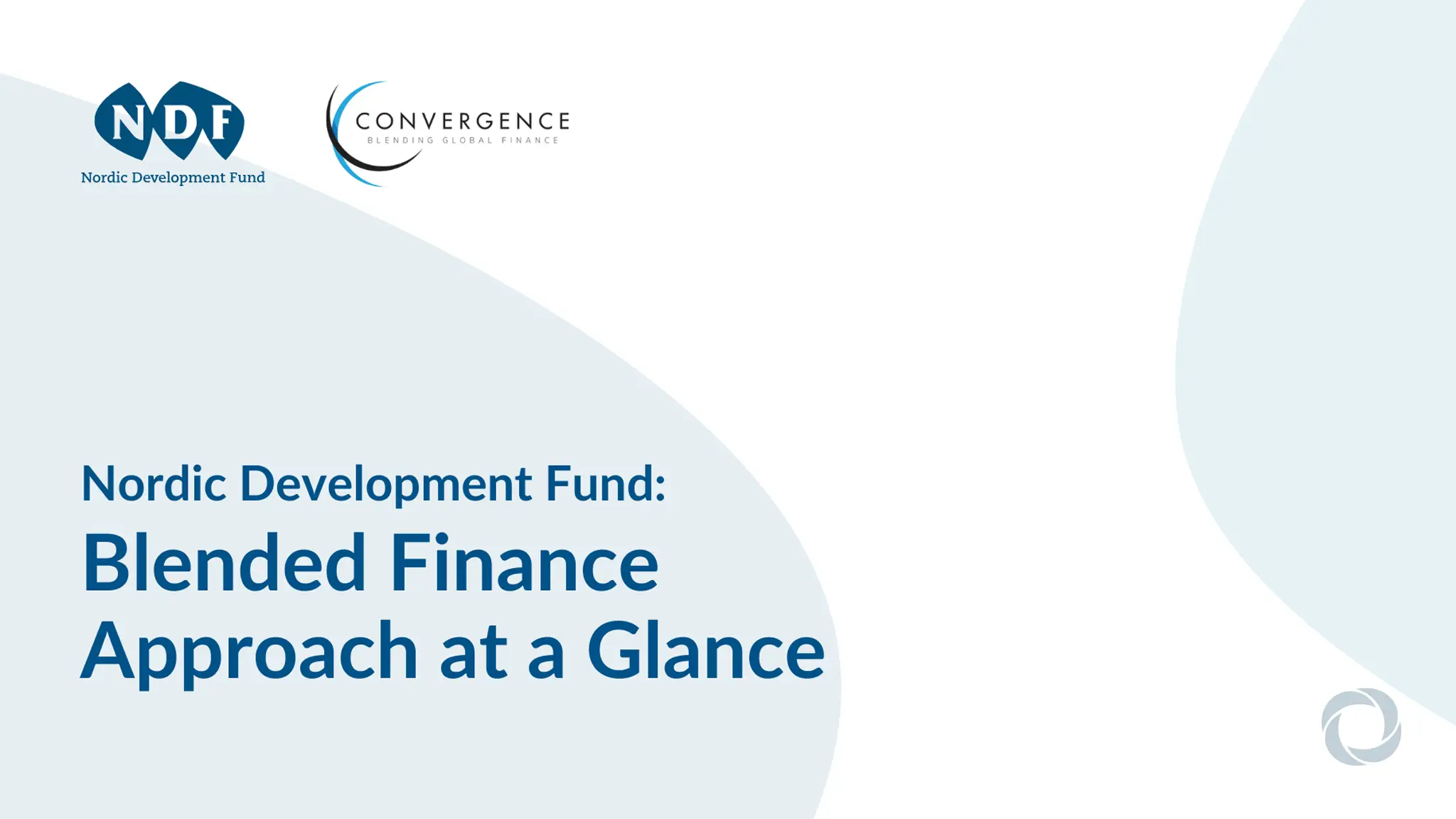The Nordic Development Fund (NDF) released a new “Blended finance approach at a glance” report showcasing how it uses blended finance to attract private investment in climate projects that commercial lenders typically avoid, officials disclosed. Working with Convergence, NDF published the report to highlight its role in climate and development financing.
Since refocusing its mandate in 2009, the fund has invested around $131 million in 12 blended finance funds that target high-risk projects in developing countries. The investments split 66% toward climate mitigation and 34% toward climate adaptation – a much higher adaptation share than most blended finance markets. NDF’s approach aims to de-risk investments and attract additional capital to projects that struggle to get backing from traditional sources.
Blended finance combines public and private money to fund development projects that might be too risky for commercial investors alone. Development finance institutions like NDF use concessional financing – offering below-market rates or taking higher risks – to make projects more attractive to private capital. This approach has become popular as donors look for ways to stretch limited aid budgets by pulling in private sector money. Nordic countries have been particularly active in climate finance, reflecting their strong environmental policies and relatively wealthy economies.
NDF’s strategy focuses on getting involved early in project design rather than just providing money after deals are already structured. This early-stage involvement lets the fund shape projects to align with Nordic values like gender equality and strong environmental and social safeguards. The fund works closely with partners to co-create investment vehicles that can attract commercial investors while maintaining development impact. Climate adaptation projects often struggle to find funding because they don’t generate revenue like solar farms or wind projects, making NDF’s focus on adaptation particularly valuable.
The fund’s agile mandate allows it to move quickly on opportunities and take risks that larger, more bureaucratic institutions might avoid. By offering concessional terms, NDF can make projects financially viable that wouldn’t otherwise attract private investment. This approach helps bridge the gap between development needs and commercial viability in sectors like renewable energy, climate resilience, and sustainable agriculture. The Nordic focus on strong governance and transparency also appeals to institutional investors who want development impact alongside financial returns.

